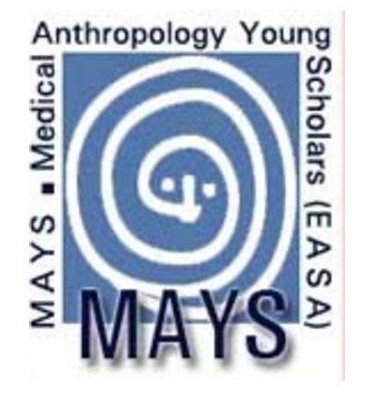Medical Anthropology Network: Special Interest Groups
Medical Anthropology Young Scholars (MAYS)
MAYS was founded in 2009 as a sub-group of the (then) Medical Anthropology Network to create a peer network for MA students, PhD candidates and junior scholars with an interest in Medical Anthropology. See the MAYS page.
Teaching Medical Anthropology to (Future) Health Professionals (closed)
The special interest group "Teaching Medical Anthropology to (Future) Health Professionals" existed between 2015 and 2022 and focused on networking and exchange to teaching related content and methods in health education. In January 2023 the group was closed.
We would like to address your attention to the newly founded group within the Society of Medical Anthropology: SMA Health Professions Education Special Interest Group. You can join this new group here.
Any requests may be addressed to Margret Jaeger (AWZ Soziales Wien) margretjaeger(at)yahoo.com or Margret Jaeger LinkedIn until June 2023 and to the coordinators (see leaflet).
We thank all participants for their engagement and hope to create a new engaged group with members worldwide - for high quality teaching of medical anthropology in health education.
Margret Jaeger and Patricia Hudelson
Mobile Medical Anthropology
This is an initiative of the EASA medical anthropology network, newly called: Medical Anthropology Europe - MAE. Mobile Medical Anthropology offers an opportunity for post-docs and senior teaching staff to move within our network to another University of their choice and exchange ideas with the lecturers and students there through participation in research seminars. The aim of the initiative is to learn about different styles of teaching, learning and doing medical anthropology and to compose a joint publication on research-led teaching. The idea is that a group of ca 8 applicants participates in this initiative, where each spends 2-3 months at another University, works on their own research and participates in teaching at the host institution. Depending on the system of teaching into which they will be integrated, applicants prepare 8-16 lectures contributing to the field of medical anthropology in consultation with their chosen host institution. To date we have made several applications to funding institutions but have never been evaluated by the academic reviewers, i.e. not admitted into the competition. In other words, to date it had not been possible to identify a suitable funding institution to fund this sort of initiative, and if anyone is interested and has an idea whom to apply to, they are invited to email: elisabeth.hsu(AT)anthro.ox.ac.uk








